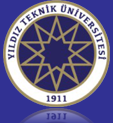| Hafta | Konular | Ön Hazırlık |
|---|
| 1 | Foreign Policy Analysis: Historical-theoretical evolution and basic debates (actor-structure/inside-outside debates) | Valerie M. Hudson, “The History and evolution of foreign policy analysis”, Foreign Policy…, pp, 12-29.Walter Carlsnaes, “Foreign Policy” Handbook of International Relations, W. Carlsnaes- T. Risse- B. A. Simmons, Sage, London, 2007, pp, 331-349. Juliet Karbo, “Foreign Policy Analysis in the 21st Century: Back to Comparison, forward to identity and ideas”, International Studies Review (special issue),Foreign Policy Analysis in 20/20, J. A. Garisson (eds), 5, 2003, pp, 156-163. W. Carlsnaes, “Acto |
| 2 | Foreign Policy Theories 1: Realism, Neorealism-Neo-classical Realism | W. C. Wohlforth, “Realism and Foreign Policy”, Foreign Policy, …pp, 32-48,Samuel Barkin, “Realism, Prediction and Foreign Policy”, Foreign Policy Analysis, 5/2009, ss,233-246. B. C. Schmidt, “The Primacy of National Security”, Foreign Policy, …pp, 156-169,S. Telbami, “Kenneth Waltz, Neorealism and Foreign Policy”, Security Studies, 11/3, 2002, pp, 158-170., Fareed Zakaria, “ A Theory of Foreign Policy: Why do states expand”, From Wealth to Power, The Unusual Origins of America’s World Role,Princ |
| 3 | Variations of Realism and Foreign Policy | R. L. Schweller, “Bandwagoning for profit: Bringing Revisionist State Back in”, International Security, 1994, pp, 72-107, R. L. Schweller, “Unanswered Threats: A Neoclassical Realist Theory of Underbalancing”, International Security, 29/2, 2004, pp, 159-201, Robert A. Pape, “Soft Balancing against the USA”, International Security 30/1, 2005, pp, 7-45, John Gleen, “Realism vs. Strategic Culture: Competition and Collobration”, International Studies Review, 11/2009, pp, 523-551. |
| 4 | Foreign Policy Theories 2: Liberalism | M. W. Doyle, “Liberalism and Foreign Policy” Foreign Policy…pp, 32-48 ,R. Keohane, “Institutional Theory and the Realist Challange after the Cold War”, içinde D. A. Baldwin (der), Neorealism and Neoliberalism: The Contemporary Debate, Colombia Uni. Press, 1993, A. Moravcsik, “Taking Preferences Seriously: A liberal Theory of International Politics”, IO, 51, 1997, pp, 513-553, M. Doyle, “Liberalism and World Politics”, The American Political Science Review, 80/4, 1996, pp, 1151-1169. J. M. Owen, |
| 5 | Foreign Policy Theories 3: From Liberal Theory to Normative Theory: Debates of ethical foreign policy | C. Brown, “Ethics, interests, and foreign policy”, Ethics and Foreign Policy, K.E. Smith-M. Lights (eds), LSE Monographs, Cambridge Uni. Press, 2001, pp, 15-32.M. Light, “Exporting Democracy”, Ethics and Foreign Policy, K.E. Smith-M. Lights (der), LSE Monographs, Cambridge Uni. Press, 2001, ss, 77-92.M. Barnett, “Duties beyond Borders”, Foreign Policy…,pp, 190-203. R. Cook, “Putting principle into practice: The Role of Human Rights in Foreign Policy,”, Cambridge Review of International Affairs, |
| 6 | Foreign Policy Theories 3-Continue | |
| 7 | Foreign Policy Theories 4: Post-Positivism (Constructivism, Post-Positivism, Discourse Analysis, Securitization Theory) | Knud Erik Jorgensen, “The Post Positivist Tradition”, International Relations Theory Palgrave-Macmillan, London, 2010, pp, 155-183. E. Adler, “Constructivism and International Relations”, Handbook of International Relations, W. Carlsnaes- T. Risse- B. A. Simmons, Sage, London, 2007, pp, 95-118. J.T. Checkel, “Constructivism and foreign policy”, Foreign Policy, …pp, 71-82. D.P. Houghton, “Reinvigorating the study of Foreign Policy Policy Decision Making: Towards Constructivist Approach” Foreign P |
| 8 | Ara Sınav 1 | |
| 9 | FPA and Role Theory | S. Harnish, “Role Theory: Operationalization of Key Concepts”, Role Theory in International Relations, Routledge, London, 2011, pp,7-15.C. Cantir- J. Kaarb, “Contested Roles and Domestic Politics: Reflections on Role Theory in Foreign Policy Analysis and IR Theory” Foreign Policy Analysis, 8, 2012, pp, 5-24.R. Bengston- O. Elgström, “Conflicting Role Conceptions? The European Union in Global Politics”, Foreign Policy Analysis, 8, 2012, pp, 98-108.Chih-yu Shih, “Assigning Role Characteristics to |
| 10 | FPA and Role Theory-Continue | |
| 11 | Decision Making 1: Rationalism Debate and Prospect Theory | J. Gross Stein, “Foreign Policy Decision-making: rational, psychological, and neurological models”, Foreign Policy…pp 102-116.E. Brighi-C. Hill, “Implementation and Behaviour”, Foreign Policy, …pp, 117-135. D. Badie, “Groupthink, Iraq, and the War on terror: Explaining US Policy Shift towards Iraq”, Foreign Policy Analysis, 6/2010, ss, 277-296.J. A. Garrison, “Foreign Policymaking and Group Dynamics: Where we have Been and where we are going”, International Studies Review …pp,176-183. |
| 12 | Decision Making 2: Rationalism Debate and Prospect Theory | J. S. Levy, Prospect Theory and International Relations: Theoratical Applications and Analythical Problems, Political Psychology, 13/2, 1992, pp,283-310. J. S. Levy, Prospect Theory, Rational Choice and International Relations, Interntaional Studies Quarterly, 41, 1997, pp, 87-112, Kai He, Huiyun Feng, Prospect Theory and Foreign Policy Analysis in Asia Pacific: Rational Leaders and Risky Behaviour, Routledge, 2013, chapter 1 and 6. |
| 13 | Decision Making 3: Leadership | M. G. Hermann- T. Preston- B. Korany- T.M. Shaw, “Who Leads Matters: The Effects of Powerful Individuals”, ISA, 2001, ss, 83-131. M. Hermann, Explaining Foreign Policy Behavior Using the Personal Characteristics of Political Leaders, International Studies Quarterly, Vol. 24, No. 1 (Mar., 1980), pp. 7-46. M. Hermenn, Assessing Leadership Style: A Trait Analysis, Social Science Automation (1999/2002)pp, 1-50. |
| 14 | Decision Making 4: Media and Public opinion | P. Robinson, “The Role of Media and Public Opinion”, Theories, …pp 138-153, D.. Foyle, “Foreign Policy Analysis and Globalization: Public Opinion, World Opinion and the Individual” International Studies Review…pp 163-170 S Chan- W. Safran, “Public Opinion as a constraint against War: Democracies’ Responses to Operation Iraqi Freedom”, Foreign Policy Analysis, 2/2006, pp, 137-156, P. Robinson, “The CNN effect: Can the news media drive foreign policy”, Review of International Studies, 1999, pp,301 |
| 15 | Review | Review |
| 16 | Final | |



